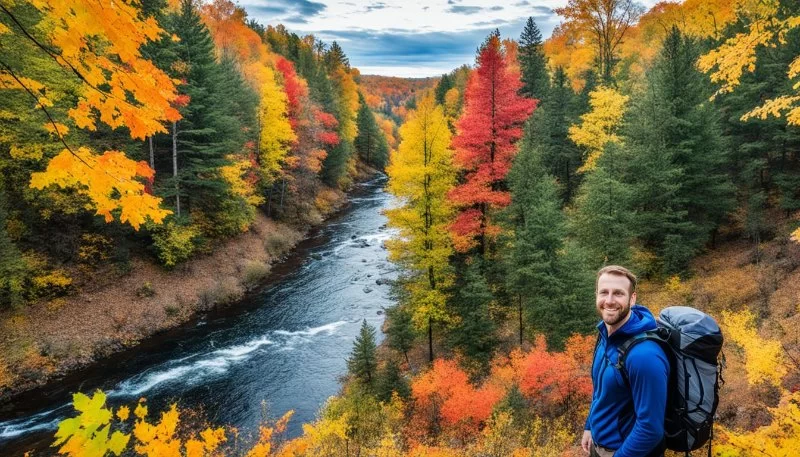Discover expert tips for finding the best campsite for fall foliage hikes. Explore how to plan the perfect autumn adventure and enjoy peak leaf season with Pine Cliff Resort.

- why-autumn-is-the-perfect-time-to-camp
- understanding-your-fall-hiking-priorities
- how-to-choose-the-best-campsite-for-fall-foliage
- what-real-campers-learned-on-their-fall-trips
- why-pine-cliff-resort-stands-out-for-autumn-adventures
1. Why Autumn Is the Perfect Time to Camp
Camping in autumn offers a unique charm that few other seasons can match. As temperatures cool and vibrant colors blanket the landscape, hiking becomes more comfortable and scenic. The air smells crisp, insects are fewer, and the golden-hour light filtering through red and orange canopies is every photographer’s dream. If you’ve been wondering about tips for finding the best campsite for fall foliage hikes, timing is everything—mid to late October is usually peak season in most regions of North America.
2. Understanding Your Fall Hiking Priorities
Before picking a campsite, ask yourself: what kind of fall foliage experience do I want? If your priority is proximity to hiking trails, opt for a site near looped forested paths. If serenity is what you crave, look for secluded grounds near lakes or creeks surrounded by maple or aspen groves. Also, remember daylight hours are shorter in autumn—choosing a site that allows quick access to trails can help you maximize your adventure without rushing.
Personal comfort is also key. Fall nights can be chilly, so consider campgrounds that allow campfires or offer nearby warm shelters if needed. Places like Pine Cliff Resort provide excellent fall accommodations tailored for seasonal campers looking to experience nature without sacrificing comfort.
3. How to Choose the Best Campsite for Fall Foliage
Finding the ideal site for fall hiking isn’t just about the view. Terrain, altitude, weather, and foliage types all play a role. Consider the following when making your pick:
- Elevation: Higher elevations usually see colors turn earlier than valleys. If you're hiking mid-season, aim higher.
- Tree Variety: Mixes of sugar maples, oaks, and birch trees offer a more colorful palette.
- Crowd Factor: Popular spots can get packed. Look for hidden gems in state parks or lesser-known federal lands for quieter stays.
- Accessibility: Dirt roads may become slick with fallen leaves or rain. Check road conditions and accessibility for your vehicle.
Online platforms, forums, and reviews can also offer invaluable firsthand advice. Search recent posts about foliage timing and specific campground conditions. Many campers share photos and tips that can guide your decision.
4. What Real Campers Learned on Their Fall Trips
Marcus, a seasoned hiker from Vermont, once camped too late in the season at a high-altitude site. “We woke up with frost on the tent and no coffee because our water froze overnight,” he laughed. Since then, he always checks seasonal averages and brings backup heat sources. In contrast, Jenna, a photographer from Oregon, booked a river-adjacent site at just the right time. “The reflections of the red trees in the water were unreal—I shot my best portfolio that week.”
These stories show how critical timing and preparation are for fall foliage camping. Every misstep is a learning opportunity—but the right preparation leads to unforgettable moments.
5. Why Pine Cliff Resort Stands Out for Autumn Adventures
When it comes to reliable accommodations and scenic immersion, Pine Cliff Resort is a standout. Nestled in a region known for its radiant fall canopy, the resort provides direct access to well-marked hiking trails, lakefront views framed by autumn gold, and cozy lodging options for those wanting comfort after a chilly trek.
Whether you’re seeking a family-friendly escape or a solo meditation in the woods, the combination of foliage, trail access, and peaceful surroundings makes it a top-tier choice. Don’t leave your fall hiking dreams to chance—plan around nature’s finest show and pick a place that complements it.
Campground
759 Box Canyon Rd, Alamo, NV 89001, USA
Visit Location PageQuality Inn Bradenton North I-75
580 66th St Ct E, Bradenton, FL 34208, USA
Visit Location Page